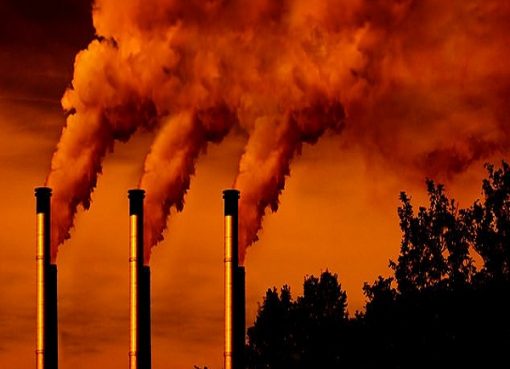African countries could face an average 20 per cent hit to their expected GDP by 2050, according to a study published by Christian Aid.
The study, published by Christian Aid, found that current climate policies put the world on track for 2.7°C of global warming by the end of the century, and warned that this could lead to an average 20 per cent hit to African countries’ expected GDP by 2050, and 64 per cent by 2100.
Even in the unlikely event that global temperatures only rise by 1.5ºC, as set out in the Paris Agreement, African countries would still be expected to face an average GDP reduction of 14 per cent by 2050 and 34 per cent by 2100, the report said.
The report was launched on finance day at the COP27 talks in Sharm El-Sheikh, where finance for poor countries hit by climate impacts is a key demand from many nations.
Based on its findings, the report’s authors have called for a mechanism to pay for climate loss and damages suffered by developing countries due to industrialisation in the global north. The financing should complement existing aid and climate finance, and the money should be public and grant-based, they say.
“These findings are stark and deserve to act as a wake-up call to leaders of all countries about the economic devastation African countries face unless we put the brakes on our rising emissions,” said Oliver Pearce, report author from Christian Aid.
“However even if we limit global heating to 1.5°C this report shows that African nations will still suffer substantial economic harm, underlining the need for much greater financial support for people who face permanent harm from climate change.
“It’s why at COP27 in Egypt we need to see much greater adaptation finance for vulnerable countries and a fund to compensate communities for loss and damage due to climate change they did not cause.”
The economies of African countries are still expected to be stronger in 2050 and 2100 than they are today, the report found after looking at the economic landscape of 50 out of 54 of the continent’s nations and comparing it to a theoretical model with no rising temperatures.
Nonetheless, report’s findings showed that eight countries would face GDP hits of more than 25 per cent by 2050 and 75 per cent by 2100 under current policies, compared to a world without climate change: Sudan, Mauritania, Mali, Niger, Burkina Faso, Chad, Djibouti and Nigeria.
Out of those nations, the country set to be hardest hit is Sudan, which already this year has had one of its worst rainy seasons with heavy rains and flash floods affecting more than 258,000 people.
However, Christian Aid has warned that, in addition to the impact of climate change, African countries are already suffering a reversal in development gains caused by the Covid-19 pandemic. According to the World Bank, the pandemic has pushed half a billion people around the world into extreme poverty.
“This analysis shows the huge drag that climate change will be on the economic development of Africa,” said Marina Andrijevic, an economist at the International Institute for Applied Systems Analysis in Vienna, and one of the study’s contributors.
“African countries face a number of challenges and the climate crisis poses a major threat to their ability to sustainably develop their economies,” she said.
Dr Friederike Otto, senior lecturer in climate science at Imperial College London, added: “Scientists are probably underestimating how dangerous climate change is in Africa, because there is a lack of monitoring and reporting extreme weather that is hitting the continent, especially heat.
“But we do know that these dangers will get even greater as temperatures rise – meaning it’s essential that polluting countries eliminate greenhouse gas emissions much faster than they currently plan to do so.”
Earlier this week, Scotland’s First Minister, Nicola Sturgeon, announced a £5m funding pot to tackle loss and damage caused by climate change in developing countries.
To date, Denmark, Scotland and Belgium are the only three countries to have made such a pledge.
Source: E&T










